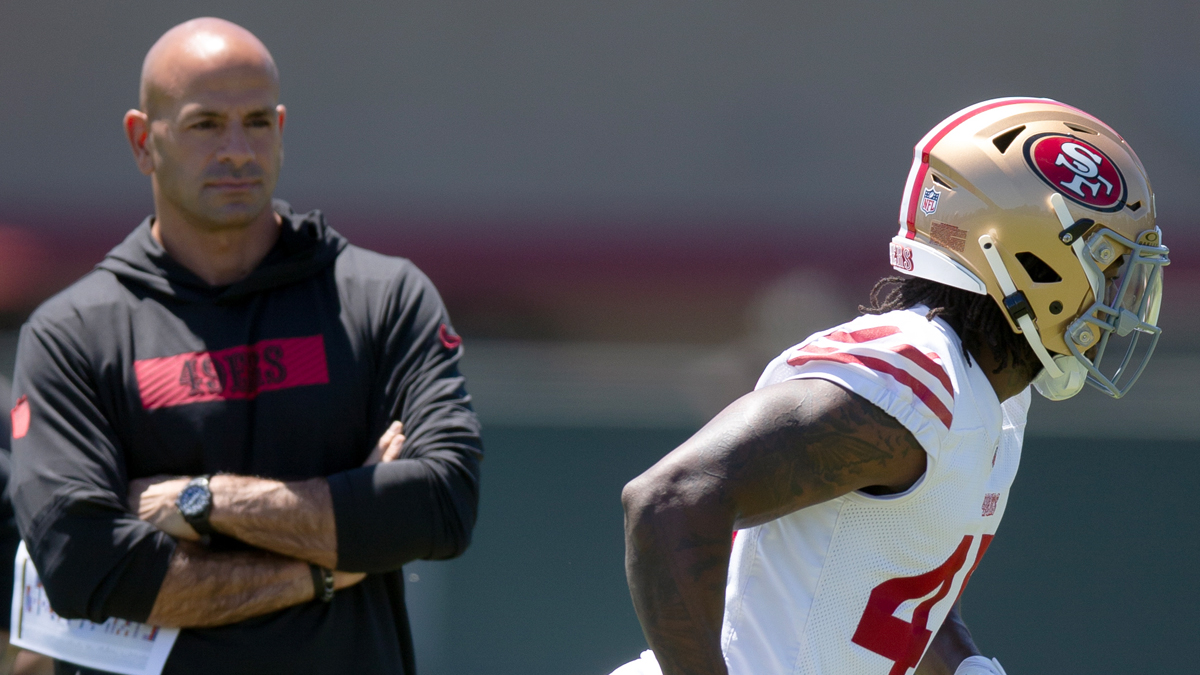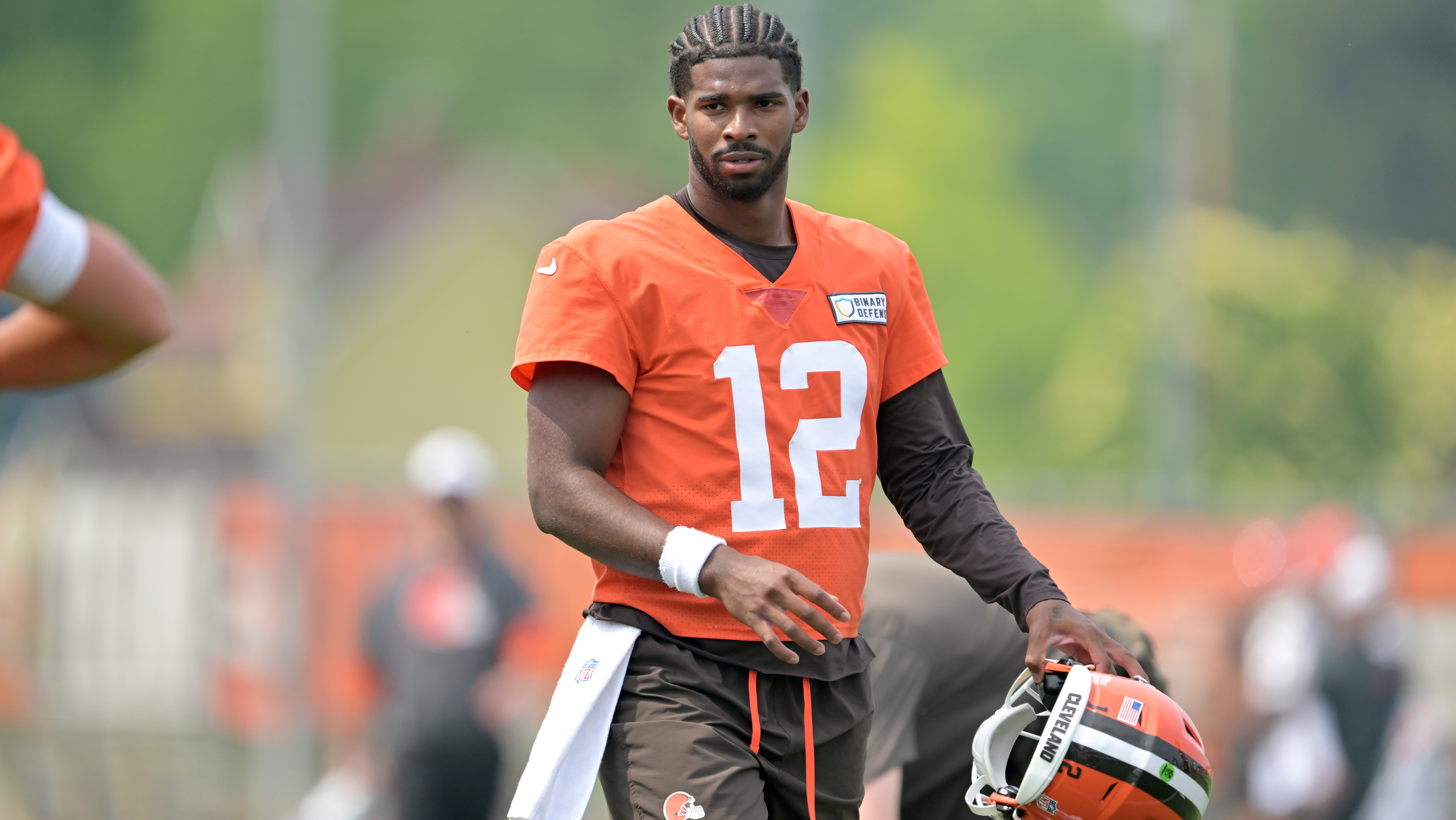
Charles Woodson saw it on occasion over his first 15 or so seasons in the league. Now, the 39-year-old safety can’t walk off the field without seeing it after every game.
“It’s happened for a long time, but I don’t think it’s been as prevalent as it is now,” Woodson said. “It seems like every day guys are swapping jerseys after the game.”
Alongside the longtime practices of the postgame meet-and-greet and the prayer circle at midfield, trading jerseys between opponents is now a mainstream trend in the NFL.
“Maybe a year or two ago is when I really started noticing it. But now, every game somebody’s exchanging jerseys,” said 49ers safety Antoine Bethea, who came into the league with the Colts in 2006. “I know my first couple of years you rarely saw [it] especially right directly after the game.”
The postgame jersey exchange is a soccer tradition that originated in Europe more than 80 years ago. The current NFL version often starts with an impromptu request.
“A lot of times it’s who gets to you first,” Woodson said. “Guys will ask you after the game. They’ll run up to you and say, ‘Hey man, can I get your jersey?’”
Many of today’s players know ahead of time who they’ll be swapping with after the final down. Wide receiver Torrey Smith is already planning to pack a little heavier for the team’s upcoming trip to Detroit.
NFL
“I’m going to have to bring one extra one because of Haloti [Ngata] who was my taxi cab to the airport every week,” Smith said of his former teammate in Baltimore who now plays for the Lions. “We rode to the airport together every week, and [linebacker] Josh Bynes. We came in together.”
There are no guidelines or any unwritten rules on how a jersey swap is to go down. It’s up to the individual player. But respect is a key component in the transaction.
“Everybody that plays this game is a fan of the game. They respect other players on other teams,” Bethea said. “One thing that’s promised is that we are going to leave this game one day. To be able to have some opposing player or a great player on another team, be able to have that jersey framed or signed, definitely be able to sit back and look up and bring back a lot of memories.”
“If it’s a guy you’ve been watching,” Woodson says, “mutual respect from both guys so you swap.”
But respect alone does not guarantee an exchange will happen.
“It just all depends,” Woodson said. One of the most decorated players in the game, his is a popular uniform. “Some games I tell them it’s not available. And that’s that. It’s just a feeling I guess.”
Woodson recently played his 250th career game. He kept the jersey he wore in that game for himself much to the approval of the Raiders’ equipment manager. Woodson admits the players “catch a little slack” from the team when a jersey must be replaced.
Teams stock a limited supply for each player. Stitching on the lettering and making the custom alterations some players request to make their uniforms game-ready are time consuming. If a player trades his jersey, there is no guarantee a game-prepared one will be ready in time for the next week’s kickoff -- as one 49ers player found out recently.
The topic was even a point of discussion among the NFL’s equipment managers during the league’s fall meetings in New York this past October, though there is no current plan to institute any kind of league rule. For now, most teams simply deduct the cost to replace a traded jersey from a player’s paycheck. The price varies, but a few hundred dollars is typical.
“That’s cool,” Bethea said. “A rookie may think otherwise, but I don’t mind it getting deducted from the paycheck at all.”
“They’ll take that money out but it’s all worth it because, again, that’s a moment you don’t get back,” Smith said.
Some diehard fans aren’t as understanding about that moment. Some simply don’t care. It’s not difficult to find a degree of disapproval of the postgame swap on social media, especially after a bad loss.
“A lot of guys, whether people believe it or not, they’re friends, in some cases even family members. They have the opportunity to switch jerseys, it’s pretty cool,” Smith said. “The game is so much bigger than the wins and losses. There are real relationships that go on. Obviously you’re frustrated from a loss, but your life doesn’t shut down when that does happen.”
Those connections are why most players are selective about who they’ll trade with.
“I’ve exchanged jerseys a few different times,” Raiders rookie Amari Cooper said. “It’s normally guys that I know or that I met through the draft process. There were a few I met at the rookie symposium or at the combine, guys I’ve known since high school. That’s usually when I’m good with it.”
“Mine would be either somebody that I know or a person that I respect that plays the same position that I play,” Bethea says. “I’ll go to a guy that came in the ’06 drive class or another safety that I respect in the game, young or old.”
“I’ve collected, but I’ve never asked for it,” Woodson said. Jets defensive back Darrelle Revis is one of the players Woodson has collected.
“When I went to say what’s up to him after the game he said, ‘Man, I gotta get your jersey’ and so we swapped. But I’ve never gone to somebody and said, ‘Hey, can I get your jersey?’”
One jersey no player will be able to trade for after a game is that of any current Steelers player. Head coach Mike Tomlin banned his players from taking part in the postgame jersey swap last season.
“Coach doesn’t want us doing it anymore,” Pittsburgh wide receiver Antonio Brown told ESPN. “We’re not here to trade apparel.”
It must be noted, though, that Tomlin’s decree came two weeks after the Steelers partnered with a memorabilia company responsible for making game-used items available to the Pittsburgh fans for purchase.
If other teams follow the Steelers’ move, it’s likely the postgame jersey exchange will remain a tradition only in international futbol.


